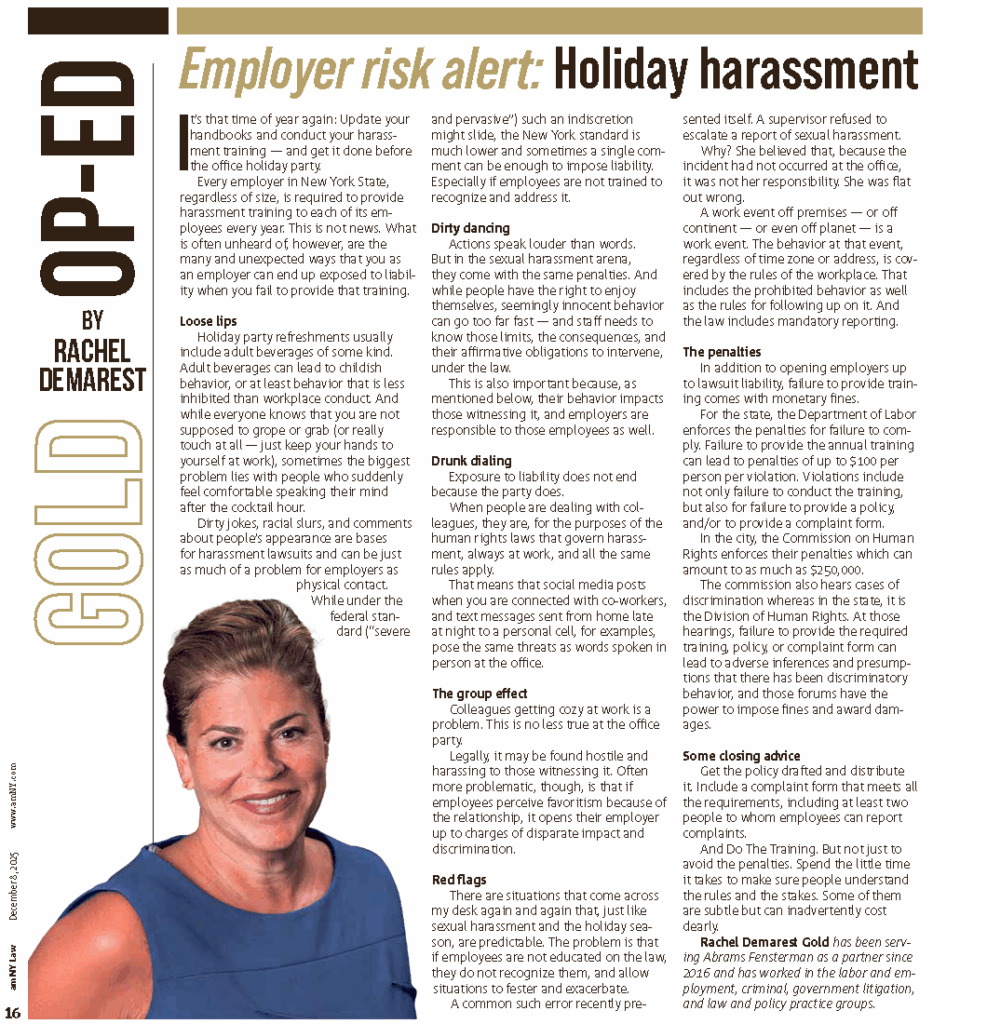Due to the economic downturn that is ravaging government coffers, it is no surprise that Federal and State governments are looking for ways to increase their tax revenues. As reported in a recent New York Times article, the newest governmental tactic is to crack down on employers who improperly categorize their employees as independent contractors. This governmental initiative presents a difficult situation for employers who rely upon independent contractors because the legal distinction between who is an employee and who is an independent contractor can be murky at best.
The allure for employers to characterize their employees as independent contractors (and thereby pay them on a 1099 basis rather than on a W-2 basis) can be enticing. When treated as an independent contractor, the employer is not required to pay the worker’s Social Security, Medicare, unemployment insurance, or workers compensation insurance taxes. Moreover, employers are not required to pay overtime wages to their independent contractors, or provide them with fringe benefits such as health insurance, pension, sick leave or paid vacation.
If Government regulators determine that an employer has misclassified an individual as an independent contractor when he or she is really an employee, then it can impose fines, penalties and interest on that employer and require that it pay back the payroll and income taxes that the employer should have withheld from the worker’s payroll check. The amount that a misclassifying employer may be required to pay back to the government can be staggering. For example, in Illinois this last November, the Attorney General fined one company $328,000 for misclassifying 18 of its employees.
The Obama Administration anticipates that it will recoup over $7 billion over the next ten years from employers which it determines have misclassified workers as independent contractors. To this end, the IRS is hiring over 100 new investigators just for this task, and it has already begun auditing over 6,000 companies. Moreover, the Administration plans to eliminate a loophole in existing law that allowed companies to legally categorize a worker as an independent contractor if that employee was, at any time in the past, a true independent contractor.
In New York, the State Labor Department’s top law enforcement official has earned a reputation for cracking down on companies that misclassify workers. Since 2007, his Department has reported 31,000 instances of misclassification and assessed $25.5 million in fines, penalties, and unpaid taxes It is clear that local, State, and Federal regulators are serious about enforcing this issue and there is no doubt that New York is following the lead of other States and the Federal Government in this area.
Workers are generally considered to be “legitimate” employees when their work hours, duties, and job performance are supervised and controlled by the business they work for and when the supplies and “tools of their trade” are provided to them by their employer.
In contrast, independent contractors are generally in business for themselves, control their own hours and how they perform their work, and supply their own tools and instruments. Because these factors are sometimes subjective in nature, it is not hard to see how an employer can, even in good faith, erroneously misclassify a worker.
Besides the financial risk associated with misclassifying employees as independent contractors, employers who misclassify their employees as independent contractors may also jeopardize the qualified tax treatment of their retirement plans. This can have significantly negative implications on the employer and its workforce. In short, unless the worker is in fact a true independent contractor, it is simply not worth the risk of misclassifying him as anything but a true W-2 employee.
If you presently utilize the services of independent contractors in your professional practice or business, you should confer with a knowledgeable attorney to ensure that you are in compliance with local, State and Federal law. Our firm has experienced attorneys that can provide you with such guidance.
* * *
If you have any questions about this matter, or if we can assist you with other employment-related issues, please feel free to contact your attorney contact at our firm. Thank you.





